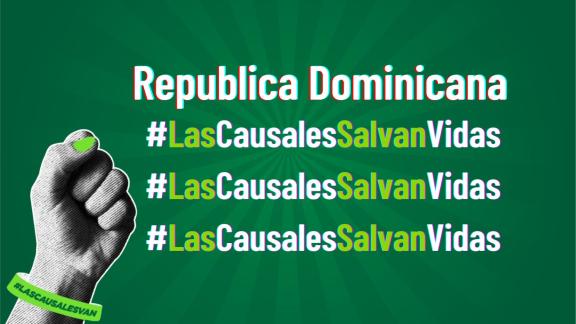15 February 2023
For immediate release: Statement on the Penal Code of The Dominican Republic
International Planned Parenthood Federation - Americas and The Caribbean Regional Office (IPPF ACRO)
Two decades' worth of attempts by national feminist movements to reform the Dominican Republic's brutal Criminal Code has failed.
The Caribbean country is one of the five countries in the world where ending a pregnancy is strictly prohibited under any circumstances. Abortion is now the third leading cause of maternal death in the country. The current Criminal Code dates back to 1884 and despite the Chamber of Deputies approving a revision to the Criminal Code in 2014 to allow abortion in the following three circumstances: where the pregnancy poses a risk to the life of a pregnant person, where the fetus could not survive outside the womb, and where the pregnancy is the result of rape or incest. The revision was struck down by the Constitutional Court in 2015.
Despite President Luis Abinader vocal support of decriminalising support in certain circumstances, the decision today fails all pregnant people and will undoubtedly force more to turn to unsafe abortion methods that could be fatal.
Eugenia Lopez Uribe – IPPF Americas and Caribbean Regional Director said:
“ For twenty years the strong feminist movements in the Dominican Republic have fought to reform the barbaric Criminal Code that denies pregnant people access to safe and legal abortion. The Criminal Code is 140 years old, it did not serve the population then and it does not serve them now. IPPF will continue to stand side by side with the movement in the Dominican Republic to fight for reform, freedom and justice. All people must have the freedom to decide what happens to their body and that includes being able to end a pregnancy safely. Noone should have to die because of this Criminal Code that has caused so much harm and death.”
IPPF - Americas and the Caribbean Regional Office stands in firm solidarity with the people of Dominican Republic and the feminist movements as we continue to fight for bodily autonomy, freedom, and reproductive justice. We acknowledge the enormous contribution of the Dominican leadership to the social justice movements in the region including the struggle for racial justice.
when









